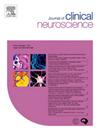Transitional care into adulthood: Management of adolescent idiopathic scoliosis
IF 1.8
4区 医学
Q3 CLINICAL NEUROLOGY
引用次数: 0
Abstract
Adolescent idiopathic scoliosis (AIS) represents a frequently encountered pathology in pediatric neurosurgical clinics that involve complex surgical counselling and intervention into adulthood. Transition of care strategies to monitor these patients over time and determine optimal care frameworks for surgical, medical, and psychosocial management, however, has not been uniformly integrated into adult healthcare systems. Further, limited studies discuss models of transitional care for pediatric spinal pathologies that discuss management trees for postoperative pediatric patients or those newly diagnosed with AIS in adulthood. The purpose of this review is to identify challenges these patients may face transitioning into adult healthcare systems, including 1) postoperative care and complication surveillance 2) new diagnoses in adulthood 3) indications and options for operative intervention and 4) health-related quality of life (HRQoL) with psychosocial domain outcomes. We analyzed the natural history and adulthood management for AIS using PRIMSA guidelines through PubMed and Ovid databases to identify studies that met our search criteria. A total of 15 studies met inclusion criteria for both searches and were incorporated into final analysis. Reoperation was observed in as high as 20% of patients. Five studies found that adult surgical intervention was associated with higher rates of complications, longer operative times, longer hospital stays, and more neurologic complications when compared with adolescent operation. Satisfaction scores were also higher for those with AIS who were treated surgically in adolescence compared to those who were braced or observed. Adolescent idiopathic scoliosis patients should be monitored into adulthood to screen for neurological deterioration, postoperative complications, and indications for surgical intervention. Neurosurgeons should engage multidisciplinary care teams for medical management of functional and mental health domains, and counsel surgical intervention based on individual radiographic, clinical, and assessments of HRQoL.
成年过渡期护理:青少年特发性脊柱侧凸的管理
青少年特发性脊柱侧凸(AIS)是儿科神经外科诊所中经常遇到的一种病理,涉及复杂的手术咨询和成年期干预。然而,长期监测这些患者并确定外科、医疗和社会心理管理的最佳护理框架的护理策略过渡尚未统一纳入成人医疗保健系统。此外,有限的研究讨论了儿童脊柱病变的过渡护理模式,讨论了术后儿童患者或成年期新诊断为AIS的患者的管理树。本综述的目的是确定这些患者在进入成人医疗保健系统时可能面临的挑战,包括:1)术后护理和并发症监测;2)成年期的新诊断;3)手术干预的适应症和选择;4)健康相关生活质量(HRQoL)与心理社会领域结局。我们使用PRIMSA指南通过PubMed和Ovid数据库分析AIS的自然历史和成年期管理,以确定符合我们搜索标准的研究。共有15项研究符合两项检索的纳入标准,并纳入最终分析。再手术率高达20%。五项研究发现,与青少年手术相比,成人手术干预与更高的并发症发生率、更长的手术时间、更长的住院时间和更多的神经系统并发症有关。青少年期接受手术治疗的AIS患者的满意度得分也高于接受支架或观察的患者。青少年特发性脊柱侧凸患者应监测到成年,以筛查神经功能恶化,术后并发症和手术干预的指征。神经外科医生应与多学科护理团队合作,对功能和精神健康领域进行医疗管理,并根据个人放射学、临床和HRQoL评估提供手术干预建议。
本文章由计算机程序翻译,如有差异,请以英文原文为准。
求助全文
约1分钟内获得全文
求助全文
来源期刊

Journal of Clinical Neuroscience
医学-临床神经学
CiteScore
4.50
自引率
0.00%
发文量
402
审稿时长
40 days
期刊介绍:
This International journal, Journal of Clinical Neuroscience, publishes articles on clinical neurosurgery and neurology and the related neurosciences such as neuro-pathology, neuro-radiology, neuro-ophthalmology and neuro-physiology.
The journal has a broad International perspective, and emphasises the advances occurring in Asia, the Pacific Rim region, Europe and North America. The Journal acts as a focus for publication of major clinical and laboratory research, as well as publishing solicited manuscripts on specific subjects from experts, case reports and other information of interest to clinicians working in the clinical neurosciences.
 求助内容:
求助内容: 应助结果提醒方式:
应助结果提醒方式:


